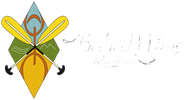Berber people
Berbers (Imazighen / Imaziɣen) are the indigenous people of North Africa west of the Nile valley. They are continuously distributed from the Atlantic to the Siwa Oasis, in Egypt, and from the Mediterraniar to the Niger River. Historically they spoke the Berber language or varieties of it, which together form a branch of the Afro-Asiatic linguistic family. Today, varieties of Maghrebi colloquial Arabic are spoken by a large portion of Berbers besides the Berber language itself. Foreign languages like French are used by the educated in Morocco, Tunisia and Algeria. Spanish is also known by some Berbers in Morocco and in the annexed Western Sahara and Italian in Libya. This presence of European languages was due to Europe's occupation and colonization of the Berber world. Today, most Berber-speaking people live in Morocco and Algeria as well as scattered throughout Tunisia, Libya, Western Sahara, Mauritania, Mali and Niger, as well as various diasporas from these countries (particularly in France).
The presence of the Arabic language and dialects is due to the spread of Islam and to the immigration of some Arab tribes to the region centuries ago. A Berber is not necessarily only someone who happens to speak Berber. The Berber identity is usually wider than language and ethnicity, and encompasses the entire history and geography of North Africa. Berbers are not a homogenous ethnic group and encompass a range of phenotypes, cultures and ancestries. The one unifying force is the Berber language and an identification with the Berber heritage and history.
Many Berbers call themselves some variant of the word Imazighen (singular: Amazigh), possibly meaning "free people" or "free and noble men" (the word has probably an ancient parallel in the Roman name for some of the Berbers, "Mazices").
(quotes from wikipedia)
The presence of the Arabic language and dialects is due to the spread of Islam and to the immigration of some Arab tribes to the region centuries ago. A Berber is not necessarily only someone who happens to speak Berber. The Berber identity is usually wider than language and ethnicity, and encompasses the entire history and geography of North Africa. Berbers are not a homogenous ethnic group and encompass a range of phenotypes, cultures and ancestries. The one unifying force is the Berber language and an identification with the Berber heritage and history.
Many Berbers call themselves some variant of the word Imazighen (singular: Amazigh), possibly meaning "free people" or "free and noble men" (the word has probably an ancient parallel in the Roman name for some of the Berbers, "Mazices").
(quotes from wikipedia)
